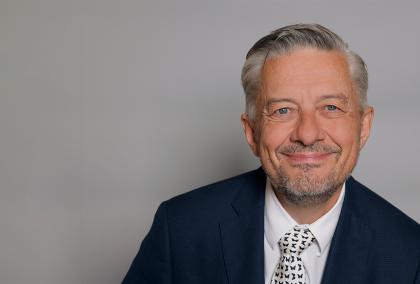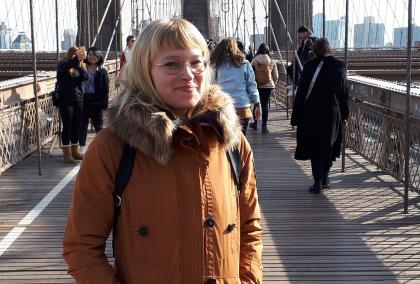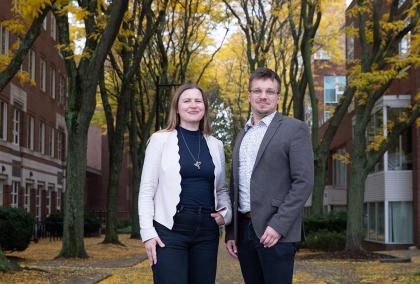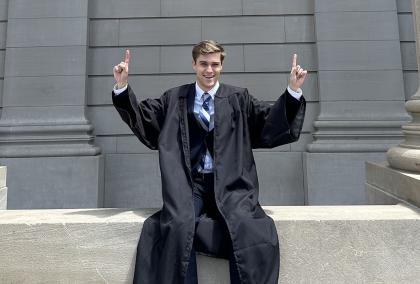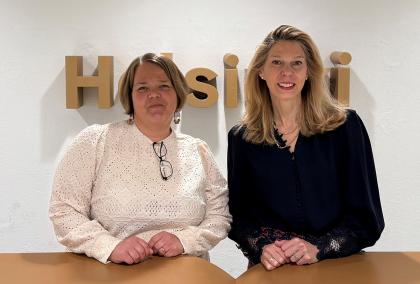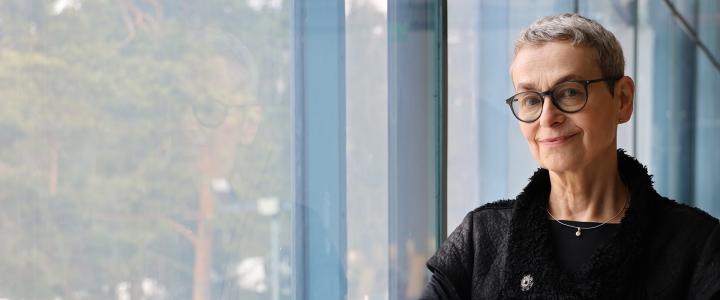

In his 2013 Nancy Hanks Lecture on Arts and Public Policy, cellist Yo-Yo Ma referred to the “edge effect”. In ecology, where ecosystems meet, such as the forest and the savannah, the point of intersection is the site of the “edge effect”. In that transition zone, because of the influence the ecological communities have on each other, is the greatest diversity of life. “It’s a region of less structure and more possibility.” Yo-Yo Ma applied the edge effect to societies. Societies are powered by three engines: politics, economics, and culture. The political engine with its power is supposed to provide stability and security. The economic engine with its wealth is supposed to put food on tables and roofs over our heads. And the cultural engine – science, education, art and more - with its currency of trust, encompasses who we are, how we feel and the things that give our lives meaning.
My work in pharmaceutical policy, public health, and organizational ethics is situated at the edge of these societal pillars. In this edge arise enormous opportunities to advance health and wellbeing and there are frictions and challenges due to often-conflicting priorities of actors in different pillars.
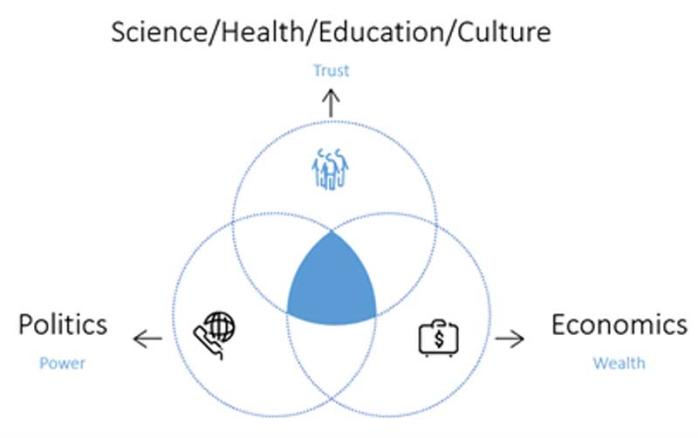
When I explored options for my Fulbright experience, the Fulbright Finland Foundation’s maxim ‘Together shaping the future’ and its 2021 News article referencing a national commitment to science diplomacy introduced Finland to me. Finland was the right place for me! Since I arrived, I have been reflecting on how the Foundation’s maxim and science diplomacy are connected, what they mean in action, and how they may apply to the work my colleagues and I do.
The terms ‘science diplomacy’ and ‘knowledge diplomacy’ were new to me. The more I learned, the more I was intrigued. Disconcerting questions arose though: If science diplomacy worked, shouldn’t we long have been able to stop the biggest threat to humanity, climate change; shouldn’t we have been able to avoid the “massive global failure” of the COVID-19 pandemic response? How could knowledge diplomacy facilitate the potential of medicines for the wellbeing of everyone?
Answers may lie in levels of interaction. Interactions start with individuals. When we engage with each other in small, trustworthy groups, we can courageously admit that we don’t know the answers to difficult questions and genuinely embark on learning together. In his conversation with members of the Fulbright Finland community, Finland’s Foreign Minister Pekka Haavisto described science diplomacy as “learning together”. It seems that answering vexing global questions – how to care for humanity in a pandemic, while we change the planet’s climate, at a time of mis- and disinformation in a polarized world – requires starting at the individual and small group levels. There we are more likely to be unencumbered by the economic and political interests that create competition at organizational and government levels.
The Fulbright Finland Foundation fosters exactly that, individual engagement to learn together, across boundaries, in the edge. That’s what’s happening among the group of scholars that has formed in the context of my Fulbright collaboration at Tampere University. Together we have designed and implemented the first course in Finland on pharmaceutical policy in which medical, global and public health, political economy, and other students participated and guests from Finnish government institutions, pharmaceutical industry and patient associations, the London School of Economics and Political Science, and Harvard Medical School shared their perspectives. The nascent Pharmaceutical Policy Group at Tampere University is now developing proposals for collaborative research asking questions to which none of us knows the answers, seeking to inform pharmaceutical policy decisions in Finland and beyond.
Importantly, the Fulbright Finland Foundation also touches the next generation. A teacher at a local high school had reached out to the Foundation to invite Tampere-based Fulbright students and scholars to share their thoughts with her students. My task was to talk about a career in science. The teacher kindly met with me before the event to help me understand the students’ needs. Many of the young people were anxious about making “the right career choice” now, and if they did not make whatever that choice was supposed to be, their lives would be in jeopardy. We talked about contributing to making the world a better place from different starting points, that the past 3 years have dramatically shown us how quickly the world changes, that lives don’t usually follow a straight line, and that engaging across boundaries is key. “Have you made a difference?” a student asked. I said I have tried and will continue to do so, in my small sphere of influence.
I continue to wonder about the impacts of science diplomacy on mitigating the global crises we face. It is clear though that intentional human connections and transnational research must be a starting point. The Fulbright Finland community creates those connections across all kinds of boundaries and in this way facilitates “together shaping the future.” I am enormously grateful to be a part of it.
Anita Wagner
2022-23 Fulbright-Tampere University Scholar Award
Associate Professor of Population Medicine
Harvard Medical School
